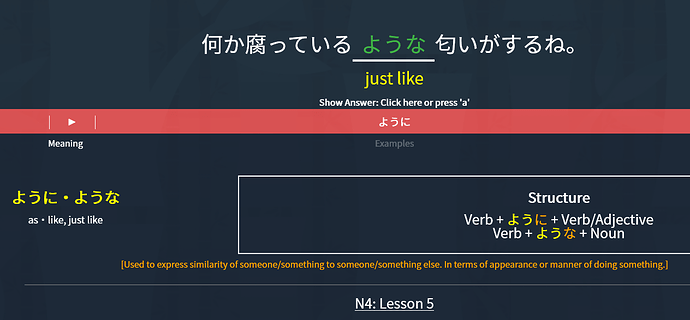I’m really lost here, the “Structure” part of the explanation doesn’t seem to make much sense here, it says ように for verbs + verbs and adjectives, yet using ように with 匂いがするね is somehow wrong?
This is a recurring problem for me, could anyone explain how to really use this grammar point? I’ve even Googled it but no one seems to really explain about WHEN to use に/な in cases like this.






